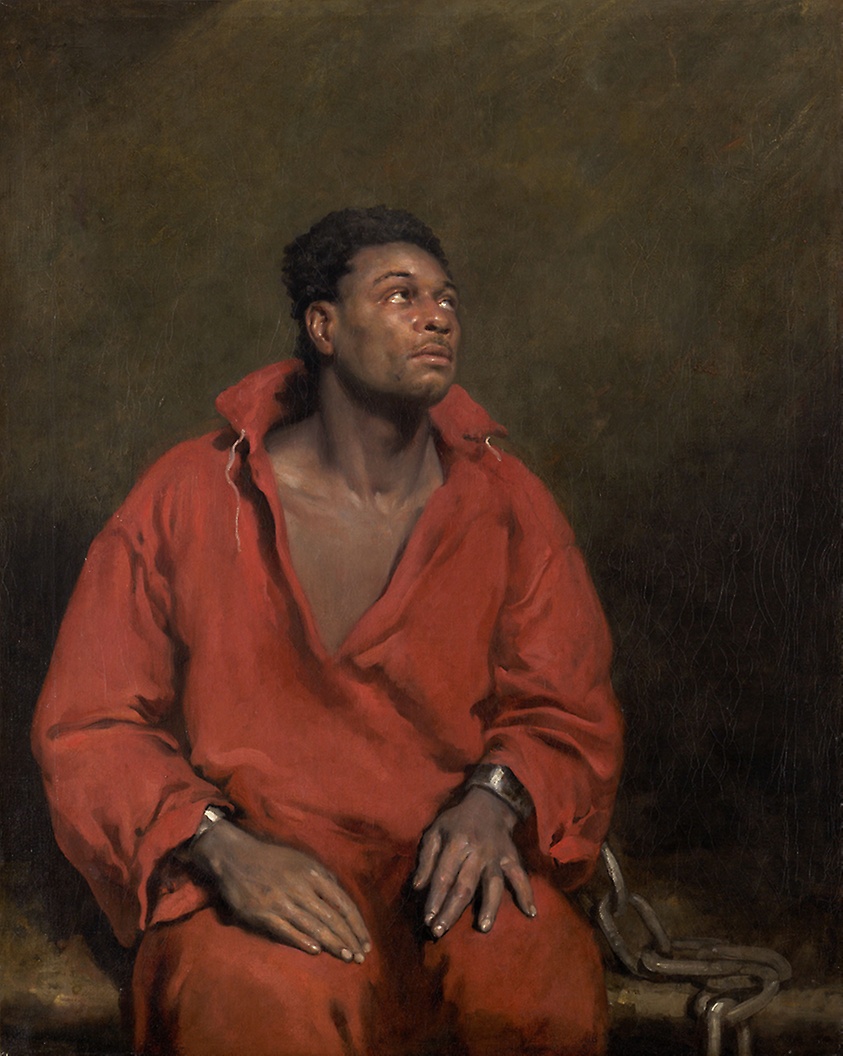Compulsory and elective courses
Completion requirements
2. Electives
2.6. Race and racism, a postcolonial perspective 7.5 credits, 4AE451

The Captive Slave, by John Philip Simpson, 1827. Art Institute of Chicago.
CC0 Public Domain Designation
Objectives
After completing the course, the student should be able to:- account for how the concept of race has arisen in the intersection of colonial expansions, the modern nation state and modern science,
- reflect on contemporary scholarly discussions of why human races do not exist, l define and use central theoretical concepts in the humanities and the social sciences concerning race in relation to political strategies for using and controlling the human body,
- critically analyse how the race concept is involved in processes of identity and politics at different social and geographical scales, from local to national and transnational contexts,
- critically analyse current issues and discussions on science and race, focusing especially on research on genetics and biological variation.
Content
This course discusses the origin of the modern concept of race, and how it has changed in the tension between politics and research, from the Enlightenment until today. Themes discussed include race as a symbolic system and as a personified identity. Historical and contemporary examples are compared to allow for reflections on how the concept of race has influenced processes of identity in various parts of the world. This entails an interdisciplinary perspective, focusing on the intersection of research in biological human osteology and humanistic critical analysis. A general theme discussed in the course is how the race concept has caused and continues to cause political tension, violence and inequality in a postcolonial world in the tension between politics and research, from the Enlightenment until today. Themes discussed include race as a symbolic system and as a personified identity. Historical and contemporary examples are compared to allow for reflections on how the concept of race has influenced processes of identity in various parts of the world. This entails an interdisciplinary perspective, focusing on the intersection of research in biological human osteology and humanistic critical analysis. A general theme discussed in the course is how the race concept has caused and continues to cause political tension, violence and inequality in a postcolonial world.- This course is an elective
- 7,5 ECTS
- For more information, please click here
